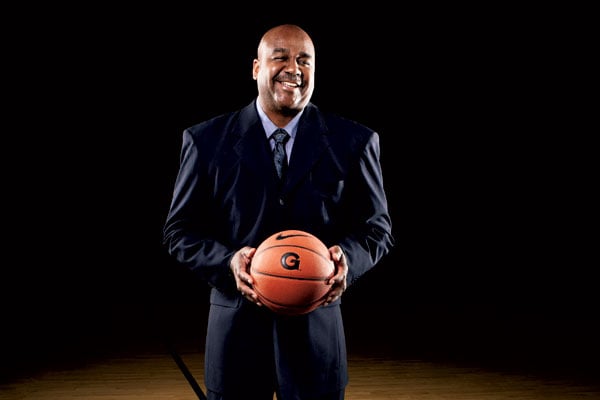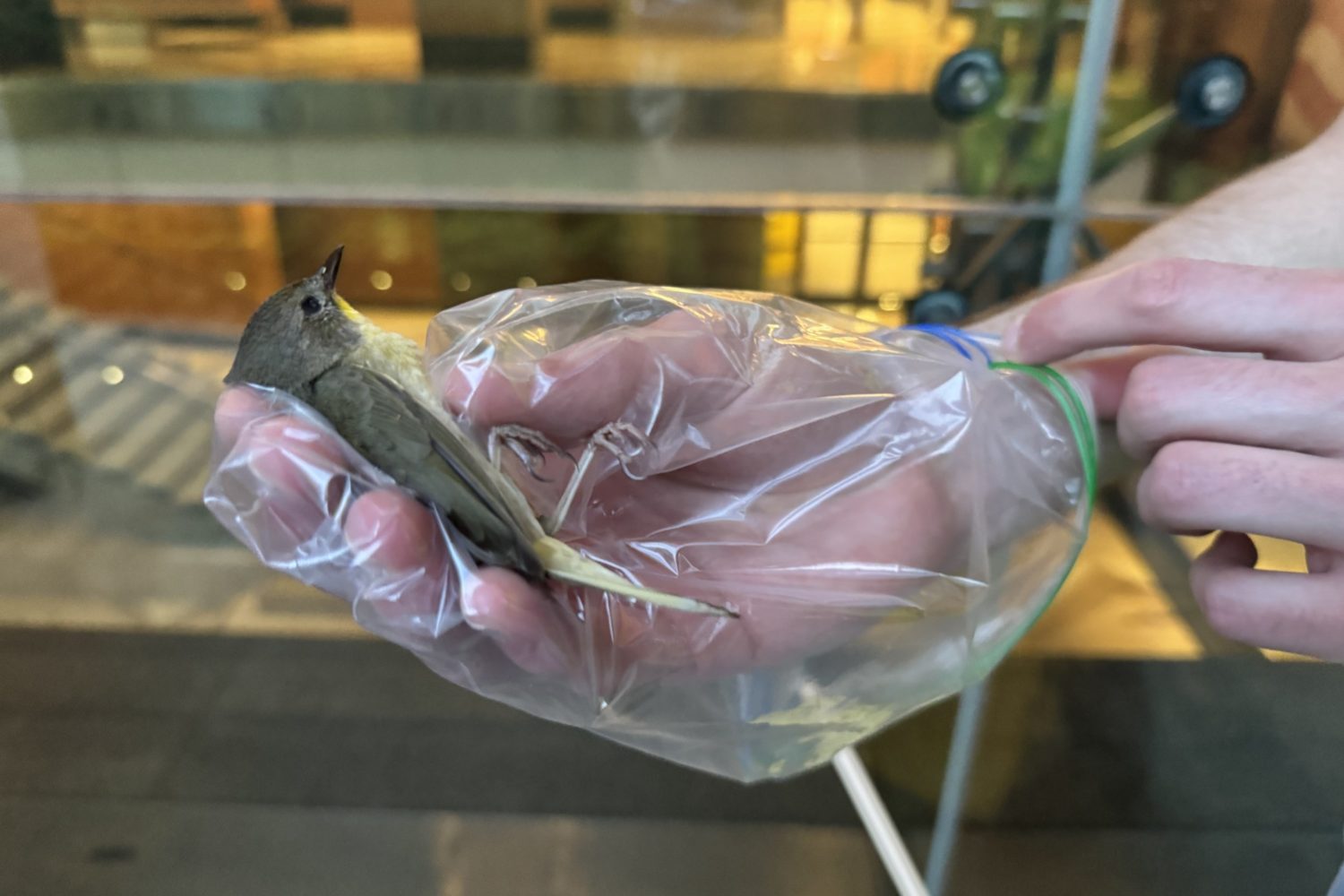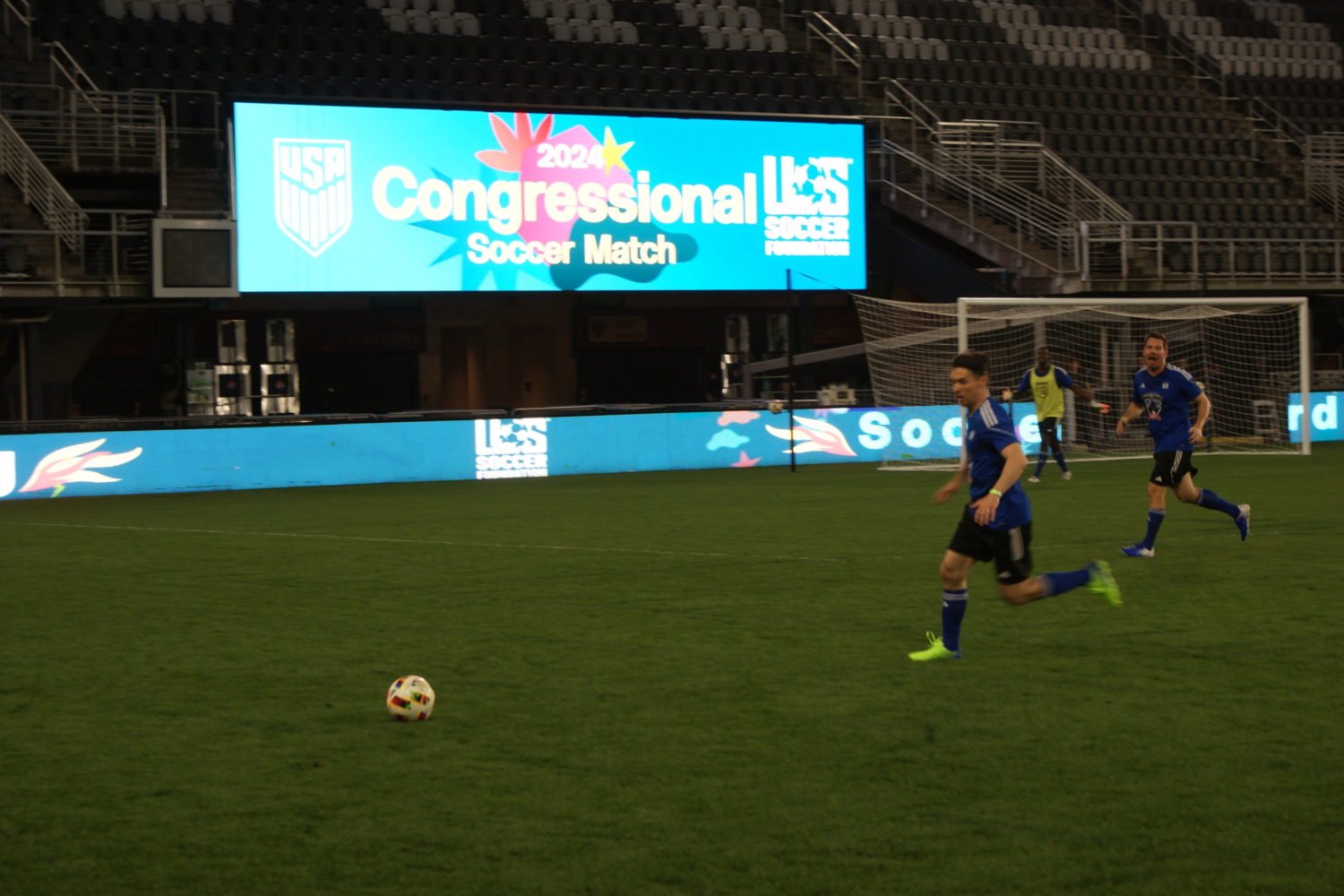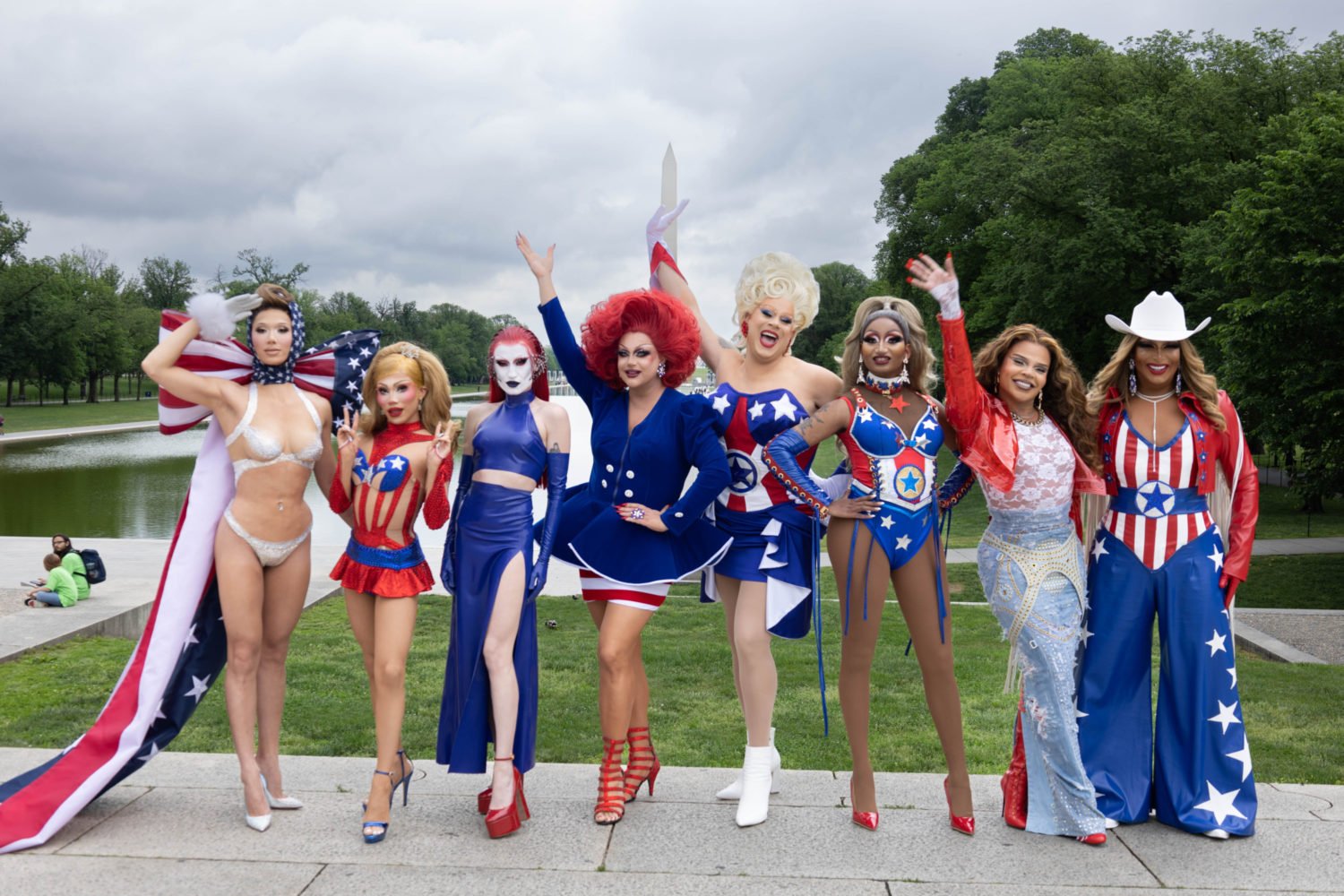
Myers tells the story of a game Gonzaga played against McKinley in the Beltway Classic. With Gonzaga behind by three points late in the game, McKinley fouled Gonzaga’s Harper. Coach Myers, noticing that the officials were distracted, ordered Thompson–a better free-throw shooter–to the foul line in Harper’s place.
“I said, ‘All right, John. You got fouled, right?’ And he looks at me with shock in his eyes. He didn’t say a word, but he looked so disappointed in me, and his eyes said, ‘Don’t do this, coach.’ “
Myers paused and changed his mind. “Forget what I just said,” he told Thompson.
“It was one of the stupidest things I think I’ve ever done,” Myers recalls, “and I vowed I would never do it again. And I didn’t.”
In 1984, Thompson’s senior season at Gonzaga, he led the Eagles to a 24-6 record and helped reestablish the school as a power in the Washington Catholic Athletic Conference. The team managed to finally beat archrival DeMatha–and did it in front of legendary North Carolina coach Dean Smith, who had come to the game to scout both Thompson and DeMatha standout and future NBA star Danny Ferry.
The elder Thompson wasn’t around Gonzaga much during his son’s playing days. As the early ’80s unfolded and Georgetown marched toward a national championship, Coach Thompson was often on the road with the Hoyas or working late to prep for games. Gwen, whom he had met in high school, was left to manage the home front largely by herself.
When the elder Thompson did attend Gonzaga games, he stayed as high up in the stands as possible. At practices he sat behind the bleachers, but as Myers recalls, “it’s pretty hard to miss a guy who’s six-foot-ten.” Even today, when the elder Thompson attends a Georgetown game, he hides in upper-tier seats or in a luxury suite.
None of which is to suggest the father wasn’t meddlesome. He was and still is. “I will stick my nose in his business,” he says. “That’s my child. I’m not talking about second-guessing John the coach. I act as a father.”
“I will stick my nose in his business,” he says. “That’s my child. I’m not talking about second-guessing John the coach. I act as a father.”
In 2001 when John III was head coach at Princeton and being courted by other schools, his father said he wanted him to make his own decision. But John III suspected that if he were to choose a job his father didn’t think was the best option, his dad wouldn’t hesitate to speak his mind. So John decided to play a practical joke.
“I was offered a job at school X, not to be mentioned, and I knew it was not the right place. But I called home and said, ‘Moms, Pops, what do you think?’ They just turned it back on me and said, ‘What do you think?’ ” he says. “I remember calling home and saying, ‘Pops, I’m going to take this job.’ And this is after days or weeks of him telling me, ‘Hey, you make your own decision.’ He goes crazy: ‘Hold on! Wait a minute! Where are you? I’ll be there in three hours! You haven’t accepted yet? I’m getting in the car!’ “
All three of John Thompson Jr.’s grown kids live in Washington. Tiffany is a teacher, and Ronny–who played for his dad at Georgetown and coached at Ball State–is a television analyst for Bethesda-based Comcast SportsNet.
The elder Thompson could be gruff and abrasive on the basketball court, but as a father he never withheld affection–he still kisses John, Ronny, and Tiffany often. Yet neither did he withhold hard truths.
Shortly after John III started high school, his father told him he would never play pro basketball. “You’re not athletic enough,” John recalls his father saying. “No matter how good you are at everything else, you’ll never have a chance to play in the NBA.”
John III found that same kind of candor in his coach at Princeton, Pete Carril.
“You go through the recruiting process and you’re used to people telling you how great you are,” Thompson says. “But Coach Carril and I were talking and he just told me how bad I was and what I needed to work on and how if I didn’t improve I would play JV there. I remember sitting there and feeling comfortable with that.”
If the Mount Rushmore of college basketball includes the carvings of John Wooden, Dean Smith, Bobby Knight, and Mike Krzyzewski, then longtime Princeton coach Pete Carril would be among the first alternates alongside Thompson’s father. Carril spent 29 years guiding the Tigers, winning 13 Ivy League championships.
“Coach Carril reminded me a lot of my dad,” Thompson says. “Yeah, one’s a big black guy and one’s a little white guy, but who they are is very similar.”
Thompson thrived at Princeton, graduating with a degree in politics and starting all four years for the basketball team. He wound up second on the Tigers’ all-time assist ledger.
Broderick Johnson, who came to Princeton from Alabama, was two years younger than Thompson and met his future friend by chance, assigned by the university to stay with Thompson during a recruiting visit.
“Life-changing” is how Johnson describes meeting Thompson at Princeton in 1985. “It was meeting someone who had a much bigger worldview than I did at the time as far as what one could be in their lives.”
“He’s always been, for me, a bit of an old soul, like a big brother,” Johnson says. “I guess having grown up in DC and having a father like he did and having seen that world stage, he had just a bit more perspective than most people his age.”
Johnson now lives in Los Angeles and is cofounder of Alcon Entertainment, the production company responsible for feature films including The Blind Side. Johnson and Thompson remain best friends.
Thompson wasn’t sure what he wanted to do after graduation in 1988. But during his senior year at Princeton, he went through the corporate-recruiting process on campus, which is how he landed in the Ford Motor Company program to train new auto dealers.
Thompson did well, both at corporate headquarters in Michigan and at the dealership in Annandale, but he left after two years and took a job at the Score Board, a sports-marketing firm based in Cherry Hill, New Jersey. His group brokered sponsorship deals between athletes and companies. It seemed like the ideal marriage of his sports background and the business acumen he had developed at Ford. Says Thompson: “I thought it would satisfy my sports fix.”
Apparently not.
“I remember sitting in a conference room at the Four Seasons in Philly,” he says. “We had just finished negotiating a multi-multi-million dollar deal with a very big athlete.” Thompson initially refuses to reveal the name of the athlete, but after prodding he confesses it was Shaquille O’Neal.
“I was sitting in the room with our CEO and another guy and high-fiving because our company made a lot of money; Shaq made a lot of money; I got a little bit of money,” he says. “And I remember thinking, ‘This is probably as good as it’s going to get in this industry–and I feel nothing right now.’ It was at that point that I realized, okay, this isn’t going to do it.”


















